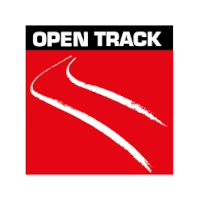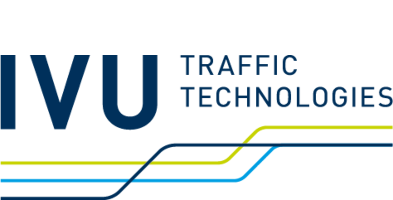| Tuesday, April 25th |
| 10:30-11:00 |
REGISTRATION |
| 11:00-12:00 |
Mini Course I (ROOM 128): Crew Scheduling (Dennis Huisman) |
| 12:10-13:10 |
Mini Course II (ROOM 128): Capacity and Performance of Freight Railway Yards and Terminals (C. Tyler Dick) |
| 13:10-14:00 |
Lunch Break |
| 14:00-15:00 |
Mini Course III (ROOM 128): Multimodal Transportation System Simulation (Carlos Azevedo) |
| 15:10-16:10 |
Mini Course IV (ROOM 128): Railway Operations Modeling with Petri Nets (Sanjin Milinkovic) |
| 16:00-19:00 |
REGISTRATION |
| 16:30-18:30 |
Welcome Reception |
| Wednesday, April 26th |
| 08:15-09:15 |
REGISTRATION |
| 09:15-10:15 |
OPENING CEREMONY (ROOM 125) |
| |
Prof. Dr. Nebojša Bojović, Dean of The Faculty of Transport and Traffic Engineering |
| Prof. Dr. Rob Goverde, President of IAROR |
| Prof. Dr. Vladan Đokić, Rector of the University of Belgrade |
| Dr. Ansgar Brockmeyer, Executive Vice President Sales & Marketing, Stadler Rail AG |
| Matej Zakonjšek, Director of Permanent Secretariat, Transport Community |
| Dr. Jelena Begović, Minister of Science, Technological Development and Innovation, Republic of Serbia |
| Goran Vesić, Minister of Construction, Transport and Infrastructure, Republic of Serbia |
| |
Coffee Break |
| 10:30-11:00 |
KEYNOTE (ROOM 125): MILP Reformulations for Train Timetabling and Dispatching: Recent Advancements (Carlo Mannino) |
| 11:10-12:30 |
Session 1.1A (Room 128): Timetabling I |
| 11:10-11:30 |
109 |
Florian Fuchs and Francesco Corman. Joint Optimal Periodic Timetabling and Train Routing |
| 11:30-11:50 |
86 |
Fangsheng Wang, Pengling Wang, Zixuan Zhu, Xiaofang Xiao and Ruihua Xu. Robust optimization of train timetable with short-turning strategy considering uncertain passenger demand and vehicle selection |
| 11:50-12:10 |
107 |
Berenike Masing, Niels Lindner and Christian Liebchen. Periodic Timetabling with Integrated Track Choice for Railway Construction Sites |
| 12:10-12:30 |
39 |
Wenyu Wang, Fangsheng Wang, Feng Zhou, Ling Hong and Ruihua Xu. Train dwell time analysis for urban rail transit stations based on random forest algorithm: A case study on Beidajie station of Xi'an Metro |
| 11:10-12:30 |
Session 1.1B (Room 325): Emerging railway technologies |
| 11:10-11:30 |
127 |
Bisheng He, Yanbo Yin, Bo Jian Zhang, Peng Chen and Gongyuan Lu. An Agent-based Simulation System for the Operations of Railway Marshalling Yard |
| 11:30-11:50 |
68 |
Michael Nold and Francesco Corman. Challenges and opportunities for the railway system in 2050: results from a survey of experts |
| 11:50-12:10 |
139 |
Marko Kapetanović, Alfredo Núñez, Niels van Oort and Rob M.P. Goverde. Vehicle-to-Grid Concept for Hydrogen Fuel Cell Hybrid-Electric Regional Trains |
| 12:10-12:30 |
76 |
Jakob Geischberger, Alessa Isberner and Norman Weik. Optimizing rollout strategies for migration to moving block signaling – a MINLP-based approach for on-board train integrity monitoring technology |
| 11:10-12:30 |
Session 1.1C (Room 326): Passenger assignment |
| 11:10-11:30 |
19 |
Renate J.H. van der Knaap, Menno de Bruyn, Niels van Oort, Dennis Huisman and Rob M.P. Goverde. Extracting Railway Passenger Demand Patterns from Origin-Destination Data for Developing Demand-Oriented Service Plans |
| 11:30-11:50 |
53 |
Tianyin Zhao, Yongxiang Zhang, Qiyuan Peng, Qingwei Zhong, Shan Jiang and Siyu Zhang. A passenger-oriented optimization approach for scheduling additional high speed trains with flexible stopping |
| 11:50-12:10 |
93 |
Songliang Zhang, Dewei Li and Yaqiong Zhao. Demand Responsive Service in Railway: A Framework to Realize by Flexible Train Timetable |
| 12:10-12:30 |
84 |
Yongqiu Zhu and Francesco Corman. Information to passengers under overcrowding situations: good or not |
| 12:30-13:20 |
Lunch Break |
| 13:20-13:50 |
KEYNOTE (ROOM 125): High-Speed Rail Transport Systems: Analysing, Modelling, and Evaluating (Milan Janić) |
| 14:00-15:20 |
Session 1.2A (Room 128): Railway performance I |
| 14:00-14:20 |
62 |
Marta Leonina Tessitore, Giorgio Sartor, Marcella Samà, Carlo Mannino and Dario Pacciarelli. On the Fragility of a Train Timetable |
| 14:20-14:40 |
85 |
Daniel Knutsen, Nils O. E. Olsson and Jiali Fu. Capacity Evaluation of ERTMS/ETCS Hybrid Level 3 using Simulation Methods |
| 14:40-15:00 |
88 |
Emma Solinen and Anders Peterson. Increasing Robustness at Single-Track Lines using the Indicator Robustness in Passing Points |
| 15:00-15:20 |
134 |
Jing Shan, Nikola Bešinović and Jörn Schönberger. Service quality assesment of international rail transport |
| 14:00-15:20 |
Session 1.2B (Room 325): Railway safety analysis and risk assessment |
| 14:00-14:20 |
38 |
Bilal Üyümez, Miroslav Pejic, Christopher Tauchmann, Andreas Oetting and Kristian Kersting. Towards Safe Machine Learning Driven Railway Infrastructure Monitoring Systems |
| 14:20-14:40 |
122 |
Milivoje Ilić, Norbert Pavlović and Ivan Belošević. Failure mode and effects analysis of rail turnouts under fuzzy environment |
| 14:40-15:00 |
138 |
Chen-Yu Lin, Xinhao Liu and Christopher Barkan. Probabilistic Modelling of Optimal Placement Strategies of Hazardous Materials Railcars in Freight Trains |
| 14:00-15:20 |
Session 1.2C (Room 326): Railway maintenance planning and scheduling |
| 14:00-14:20 |
23 |
John Armstrong, John Preston, Peter Helm and Aleksandra Svalova. ACHILLES: Reducing Infrastructure Whole-Life Costs |
| 14:20-14:40 |
113 |
Felix Prause, Ralf Borndörfer, Boris Grimm and Alexander Tesch. Approximating the Rolling Stock Rotation Problem with Predictive Maintenance by a State-Expanded Event-Graph |
| 14:40-15:00 |
29 |
Thomas Schlechte, Christian Blome, Stefan Gerber, Stefan Hauser, Jens Kasten, Gilbert Müller, Christof Schulz, Michel Thüring and Steffen Weider. The Bouquet of Features in Rolling Stock Rotation Planning |
| 15:00-15:20 |
25 |
Felix Lampe, Maren Maus, Lea Elfert and Nils Nießen. Influence of different prioritization approaches of maintenance and replacement measures on station infrastructure quality |
| 15:20-15:50 |
Coffee Break |
| 15:50-17:10 |
Session 1.3A (Room 128): Railway capacity I |
| 15:50-16:10 |
95 |
Inneke Van Hoeck and Pieter Vansteenwegen. Solving the Timetabling and Routing with Order Constraints Problem to Optimize Railway Capacity Utilization |
| 16:10-16:30 |
67 |
Jiaxi Li, Jonathan Preston, John Armstrong and Wuyang Yang. Evaluating Timetables' Capacity Utilisation with An Extended Event-activity Network Method |
| 16:30-16:50 |
47 |
Christopher Szymula, Nikola Besinovic and Karl Nachtigall. Demand-based Capacity Assessment using Mixed Integer Programming |
| 16:50-17:10 |
119 |
Nadine Friesen, Tim Sander, Karl Nachtigall and Nils Nießen. Modelling Time in the Timetable-Based Railway Network Design Problem |
| 15:50-17:10 |
Session 1.3B (Room 325): Train delay prediction |
| 15:50-16:10 |
89 |
Thomas Spanninger and Francesco Corman. Non-stationarity in Train Delay Propagation Analytics Based on Markov Chains |
| 16:10-16:30 |
126 |
Bisheng He, Fangzhen Shen, Yongjun Zhu, Andrea D'Ariano and Lufeng Chen. Train Delay Prediction via Transformer-based Deep Learning Model |
| 16:30-16:50 |
14 |
Farid Arthaud, Guillaume Lecoeur and Alban Pierre. Transformeurs à Grande Vitesse |
| 16:50-17:10 |
69 |
Baihan Huang, Joe Wright and Taku Fujiyama. Examining the Validity of Using Train Position Data for Railway Traffic Control by Machine Learning |
| 15:50-17:10 |
Session 1.3C (Room 326): Energy saving in railways |
| 15:50-16:10 |
121 |
Jacob Trepat Borecka, Nikola Besinovic and Francesco Corman. Real-time Mitigation of Power Peaks in Railway Networks using Train Control Measures |
| 16:10-16:30 |
96 |
Songwei Zhu, Yihui Wang, Shaofeng Lu and Andrea D Ariano. Lagrangian relaxation based speed profile optimization for multiple trains under virtual coupling with operational state transition |
| 16:30-16:50 |
18 |
Shin Ying Ng, Yan Cheng and Taku Fujiyama. Investigating freight train path inefficiency in view of reduction of pollutant emission |
| 16:50-17:10 |
105 |
Alex Cunillera, Harm Jonker, Gerben Scheepmaker, Wilbert Bogers and Rob Goverde. Coasting advice based on the analytical solutions of the train motion model |
| 17:30-19:00 |
IAROR - Board meeting (Board members only) (ROOM 128) |
| Thursday, April 27th |
| 09:00-10:20 |
Session 2.1A (Room 128): Railway performance II |
| 09:00-09:20 |
52 |
Michelle Ochsner, Daria Ivina and Carl-William Palmqvist. Weather-Related Railway Infrastructure Failures in Sweden: An Exploratory Study |
| 09:20-09:40 |
92 |
Bianca Pascariu, Balraj David, Paola Pellegrini and Grégory Marlière. Railway Traffic Optimization: Robustness to Driving Behaviour Noise |
| 09:40-10:00 |
94 |
Grace Mukunzi, Emil Jansson and Carl-William Palmqvist. Restoration time for corrective maintenance on the Swedish railway network |
| 10:00-10:20 |
100 |
Johan Högdahl and Markus Bohlin. Maximizing railway punctuality: A microsimulation evaluation of robust timetabling methods |
| 09:00-10:20 |
Session 2.1B (Room 325): Railway traffic management and rescheduling I |
| 09:00-09:20 |
116 |
Konstantinos Rigos, Egidio Quaglietta and Rob M.P. Goverde. Goal-oriented Self-Organization in Railways |
| 09:20-09:40 |
80 |
Bishal Sharma, Paola Pellegrini, Joaquin Rodriguez and Neeraj Chaudhary. Railway Rescheduling Considering Rerouting of Connecting Trains after Perturbations |
| 09:40-10:00 |
78 |
Leo D'Amato, Federico Naldini, Valentina Tibaldo, Vito Trianni and Paola Pellegrini. Designing self-organizing railway traffic management |
| 10:00-10:20 |
90 |
Nina D. Versluis, Paola Pellegrini, Egidio Quaglietta, Rob M.P. Goverde and Joaquin Rodriguez. An Approximate Conflict Detection and Resolution Model for Moving-Block Signalling by Enhancing RECIFE-MILP |
| 09:00-10:20 |
Session 2.1C (Room 326): Line planning |
| 09:00-09:20 |
79 |
Sara Gestrelius, Martin Joborn and Zohreh Ranjbar. Flexible trains in timetabled traffic |
| 09:20-09:40 |
72 |
Hongda Wang, Lei Nie, Zhiyuan Yao and Zhenhuan He. Optimization of the Combination of Cycle Times for High-Speed Railway Network |
| 09:40-10:00 |
55 |
Hailin Li, Lei Nie, Huiling Fu, Feng Gao and Huaibin Hu. Optimizing incomplete cyclic line plan in a rail network |
| 10:00-10:20 |
61 |
Yuxin Mo and Lei Nie. Optimization of Periodic Train Timetable Considering Adding and Reducing Train Stops |
| 10:20-10:35 |
Coffee Break |
| 10:35-11:35 |
Session 2.2A (Room 128): Disruption management |
| 10:35-10:55 |
51 |
Liyun Yu, Carl Henrik Häll, Anders Peterson and Christiane Schmidt. A MILP Model for Rescheduling Freight Trains under an Unexpected Marshalling-Yard Closure |
| 10:55-11:15 |
49 |
Kai Liu, Jianrui Miao, Zhengwen Liao, Xiaojie Luan and Lingyun Meng. Dynamic constraint and objective generation approach for real-time train rescheduling model under human-computer interaction |
| 11:15-11:35 |
63 |
Bowen Gao, Pieter Vansteenwegen, Dongxiu Ou and Decun Dong. Application of reversible tracks in real-time train rescheduling during partial blockages |
| 10:35-11:35 |
Session 2.2B (Room 325): Railway alignment and network design |
| 10:35-10:55 |
20 |
Minhao Xu, Bin Shuai, Lei Guo, Liandong Li and Zhiwei Shao. Optimization of the Inspection Area Districting Plan for Comprehensive Inspection Trains |
| 10:55-11:15 |
81 |
Stefano Gioia. Line Edge Graphs: a Methodology to Model and Determine Generic Lines, Line Plans and Line Type Services in Public Transport Planning |
| 11:15-11:35 |
136 |
Alberte Castro, Gerardo Casal, Duarte Santamarina and Miguel Ernesto Vázquez-Méndez. Recreation of horizontal alignments with numerical optimization |
| 10:35-11:35 |
Session 2.2C (Room 326): Rail yard operation and design |
| 10:35-10:55 |
44 |
Jiaxi Zhao and C. Tyler Dick. Predicting and Measuring Service Disruption Recovery Time in Railway Gravity Hump Classification Yards |
| 10:55-11:15 |
42 |
Jintang Shi, Haodong Li and Pieter Vansteenwegen. The shunting with service scheduling problem at a Chinese high-speed railway depot |
| 11:15-11:35 |
141 |
Daniel Haalboom and Nikola Bešinović. Freight train scheduling for industrial lines with multiple Railway Undertakings |
| 11:40-12:10 |
KEYNOTE (ROOM 125): Resilience in Railway Transport Networks: From Concepts to Applications (Nikola Bešinović) |
| 12:10-13:00 |
Lunch Break |
| 13:00-14:00 |
Session 2.3A (Room 128): Rolling stock and crew scheduling I |
| 13:00-13:20 |
15 |
Zongran Li, Yao Chen, Yun Bai and Yaling Xiao. Asymmetric demand-oriented train scheduling and rolling stock circulation planning with skip-stop tactic: A Mixed integer linear programming approach |
| 13:20-13:40 |
31 |
Manuel Bröchin, Reto Ramseier and Kaspar Schüpbach. Rolling Stock Planning with Maintenance Constraints by a Rolling Horizon approach |
| 13:40-14:00 |
111 |
Rabii Zahir, Christiane Schmidt and Tomas Lidén. Shift Scheduling for Train Dispatchers |
| 13:00-14:00 |
Session 2.3B (Room 325): Railway signalling and control systems |
| 13:00-13:20 |
27 |
Steven Harrod. Lessons from ERTMS and PTC Implementation in Europe and the United States |
| 13:20-13:40 |
110 |
Guillaume De Tiliere, Quentin De Cacheleu and Florian Bonet. Assessing the performance of tramway junctions with the mutualisation of rail signalling |
| 13:40-14:00 |
135 |
Joelle Aoun, Rob M.P. Goverde, Roberto Nardone, Egidio Quaglietta and Valeria Vittorini. Analysis of Safe and Effective Next-Generation Rail Signalling Systems using a FTA-SAN Approach |
| 13:00-14:00 |
Session 2.3C (Room 326): Rail freight transport I |
| 13:00-13:20 |
7 |
Tommaso Bosi, Federico Bigi, Andrea D'Ariano and Francesco Viti. The Shunt-In Shunt-Out Problem in Rail Freight Transport: an Event-Based Simulation Framework for Sustainable Rolling Stock Management |
| 13:20-13:40 |
32 |
Elias Dahlhaus. Generalized Train Marshalling from Practical View, Development of the Sorting Requirements and Heuristics |
| 13:40-14:00 |
101 |
Niloofar Minbashi, Jiaxi Zhao, C. Tyler Dick and Markus Bohlin. Application of Simulation-assisted Machine Learning for Yard Departure Prediction |
| 14:10-15:10 |
Session 2.4A (Room 128): Timetabling II |
| 14:10-14:30 |
16 |
Zhiyuan Yao, Lei Nie, Zhenhuan He and Jingzhe Zhou. A Rolling Horizon Approach to Dense and Heterogeneous Train Timetabling with Skip-Stop Strategy |
| 14:30-14:50 |
24 |
Ambra Toletti, Florin Leutwiler, Jullian Jordi, Gabrio Caimi and Francesco Corman. Timetabling for Railways in Practice: Examples of Real-world Constraints |
| 14:50-15:10 |
33 |
Alexander Kuckelberg. Microscopic routing for mixed granularity routing requests |
| 14:10-15:10 |
Session 2.4B (Room 325): Driver Advisory Systems and ATO |
| 14:10-14:30 |
37 |
Peiran Ying, Xiaoqing Zeng, Andrea D'Ariano, Dario Pacciarelli and Haifeng Song. Energy-efficient High-speed Train Driving Considering Neutral Zone and Time window |
| 14:30-14:50 |
21 |
Ziyulong Wang, Egidio Quaglietta, Maarten Bartholomeus, Alex Cunillera and Rob Goverde. Conflict-free train path planning using ATO timing points |
| 14:10-15:10 |
Session 2.4C (Room 326): Rail freight transport II |
| 14:10-14:30 |
97 |
Yuan Chen, Minyi Cai, Haodong Li and Jiaqi Ding. Data-driven based circular train design of railway freight transportation |
| 14:30-14:50 |
45 |
Siqiao Li, Xiaoning Zhu, Pan Shang and Li Wang. Multi-objective Express Shipment Service Network Design for High-speed Railway Networks |
| 14:50-15:10 |
145 |
Vladan Nikolic. Strategies for the Improvement of Rail Freight Transport Between the Republic of Turkey and Republic of Serbia: A Case Study Using A'WOT Model |
| 15:10-15:50 |
Coffee Break |
| 15:10-15:50 |
Poster session (Hall II Floor) |
| 15:10-15:50 |
30 |
Tamme Emunds, Mariia Anapolska, Christina Büsing and Nils Nießen. Developing Event-Action Network Heuristics for Real Time Traffic Management in Urban Railway Transit |
| 15:10-15:50 |
56 |
Bertram Ludwig and Philipp Kastberger. Towards Automated Railway Operations - TARO |
| 15:10-15:50 |
57 |
Milan Dedík, Zdenka Bulková, Lumír Pečený and Martin Vojtek. Potential of the long-distance railway transport routes in the post-pandemic period in Europe |
| 15:10-15:50 |
60 |
Yingsi Huang, Yuyan Tan, Yafeng Ma, Zizhen Zhao and Yaxuan Li. Railway Passenger Kilometers Forecasting with Combined Multi-Grey Neural Network Model |
| 15:10-15:50 |
59 |
Atieh Kianinejadoshah and Stefano Ricci. Combined Lines-Nodes Capacity Assessment in Freight-Passengers Complex Railway Networks |
| 15:10-15:50 |
66 |
Ruyue Zhao, Lingyun Meng, Nikola Bešinović, Jianrui Miao, Xiaojie Luan, Yihui Wang and Zhengwen Liao. Dynamic Train Priority Rescheduling Model with Mixed Passenger and Freight Traffic using A Rolling Horizon Solution Approach |
| 15:10-15:50 |
103 |
Viera Klasovitá and Francesco Corman. Line Planning for Time-Varying Passenger Demand in Railways |
| 15:10-15:50 |
117 |
Fabrizio Cerreto, Paola Pellegrini, Rémy Chevrier and Fabrizio Tavano. Assessing self-organization algorithms for railway traffic: the selection of three case studies for the SORTEDMOBILITY research project |
| 15:10-15:50 |
120 |
Matea Mikulčić, Ivica Ljubaj and Zvonimir Zelenika. Initiating Wireless Railway Network Planning with FRMCS in Croatia |
| 15:10-15:50 |
128 |
Diwen Shi and C Tyler Dick. Simplified Train Consist Planner to Drive Simulations of Alternative Energy Locomotive Deployment Strategies to Lower the Carbon Emissions of Freight Rail Transportation |
| 15:50-17:10 |
Session 2.5A (Room 128): Timetabling III |
| 15:50-16:10 |
46 |
Louis Fourcade, Stéphane Dauzère-Péres, Juliette Pouzet and Vincent Chmielarski. Analyzing the impact of integrated train path selection and rolling stock planning in railway freight transportation |
| 16:10-16:30 |
54 |
Wenhao Zhu, Tao Zhang, Zhipeng Ying and Lingyun Meng. Considering Dispatcher’s Intention in Real-time Train Rescheduling Problem Under a Human-Computer Interaction Framework |
| 16:30-16:50 |
13 |
Tao Han, Yuguang Wei, Huaixiang Wang and Yang Xia. Optimization of train timetabling for Container Trains under Passenger Transport Mode in Railway Corridors |
| 16:50-17:10 |
98 |
Xiajie Yi, Grégory Marlière, Paola Pellegrini, Joaquin Rodriguez and Raffaele Pesenti. Coordinated train rerouting and rescheduling in large infrastructures |
| 15:50-17:10 |
Session 2.5B (Room 325): Digital Automated Train Operation |
| 15:50-16:10 |
5 |
Zishuai Pang, Liwen Wang, Tianyin Zhao, Qiyuan Peng and Li Li. A Hybrid Machine Learning Model for Train Dwelling Time Prediction Addressing Passenger Flow Fluctuations |
| 16:10-16:30 |
26 |
Adrian Wagner, Ulrich Pernull, Philipp Graf and Frank Michelberger. Impact of the Digital Automatic Coupling for single wagonload transport |
| 16:30-16:50 |
77 |
Dimitris Kouzoupis, Ishan Pendharkar, Jonathan Frey, Moritz Diehl and Francesco Corman. Embedded Model Predictive Train Control |
| 16:50-17:10 |
43 |
Steffen Schäfer, Lucas Greiner-Fuchs, Tobias Hofmeier, Philipp Koch and Martin Cichon. Virtual Validation Method of Automated On-Sight Driving Systems for Shunting Operations |
| 15:50-17:10 |
Session 2.5C (Room 326): Railway simulation and digital twins |
| 15:50-16:10 |
129 |
Geordie Roscoe, Matthew Parkes and C. Tyler Dick. Evaluating the Potential for Platoons of Self-Propelled Autonomous Railcars (SPARCs) to Provide Short-Haul Intermodal Service on Low-Density Rail Corridors |
| 16:10-16:30 |
12 |
Andrew Nash, Giorgio Medeossi and Mike Bagshaw. Agile Simulation: An approach for increasing optimisation in railway planning. |
| 16:30-16:50 |
125 |
Zhuang Li, Hongxiang Zhang, Wen Wen, Bisheng He, Yuan Wang and Gongyuan Lu. Evaluating Car-to-Train Assignment Strategies for the Railway Marshalling yard using a Multi-Agent Simulation Approach |
| 16:50-17:10 |
82 |
Dušan Jeremić and Sanjin Milinković. Single track dispatching using Petri nets |
| 17:30-19:00 |
IAROR - Business Meeting (IAROR members only) (ROOM 128) |
| Friday, April 28th |
| 09:00-10:00 |
Session 3.1A (Room 128): Railway capacity II |
| 09:00-09:20 |
4 |
Alex Wardrop. Understanding Railway Line Capacity |
| 09:20-09:40 |
36 |
Nicola Coviello, Giorgio Medeossi, Thomas Nygreen, Paola Pellegrini and Joaquin Rodriguez. A multi-objective framework for strategic railway timetabling: integration of ant colony optimization and mixed integer linear programming |
| 09:40-10:00 |
70 |
Alex Landex and Lars Wittrup Jensen. Capacity gains with virtual sub-sections in the ETCS Signaling System |
| 09:00-10:00 |
Session 3.1B (Room 325): Rolling stock and crew scheduling II |
| 09:00-09:20 |
73 |
Shan Jiang, Yongxiang Zhang, Qiyuan Peng, Tianyin Zhao, Tao Feng and Jiawei Lu. Real-time train timetable and rolling stock circulation plan rescheduling in an urban rail transit network: an integrated optimization approach |
| 09:20-09:40 |
102 |
Mariana De Almeida Costa, Tiago Alves, António Ramos Andrade and Francesco Corman. A Hybrid Bogie Maintenance Approach to Optimize Railway Fleet Availability |
| 09:40-10:00 |
99 |
Arturo Crespo Materna, Cedric Steinbach, Andreas Oetting and Shanqing Chai. Towards a Generic Heuristic Approach for the Real-Time and Automatic Schedule Adjustment |
| 09:00-10:00 |
Session 3.1C (Room 326): Rail freight transport III |
| 09:00-09:20 |
71 |
Peiran Han, Lingyun Meng, Nikola Bešinović, Xiaojie Luan, Zhengwen Liao, Jianrui Miao and Yihui Wang. Optimizing Resource Planning in Shunting Yard with Constraint Programming |
| 09:20-09:40 |
40 |
Predrag Grozdanović, Miloš Nikolić, Milica Šelmić and Dragana Macura. Prediction of the Freight Train Energy Consumption with the Time Series Models |
| 09:40-10:00 |
8 |
Gaurav Kumar and Akhilesh Kumar. Optimization Models for Rail Freight Operators: A Case Study of Indian Special Freight Train Operator |
| 10:00-10:15 |
Coffee Break |
| 10:15-11:15 |
Session 3.2A (Room 125): Timetabling IV |
| 10:15-10:35 |
58 |
Zhiwen Jiang, Yun Bai and Zongran Li. Cross-line Train Service Planning considering Passenger Travel Demand after Large Events |
| 10:35-10:55 |
48 |
Jianhao Ge, Pengling Wang and Xiaofang Xiao. Timetable Optimization for Sharing-Corridor Metro Lines under Virtual Coupling |
| 10:55-11:15 |
142 |
Tianqi Li, Lei Nie and Rob Goverde. Periodic train timetable expansion: An integrated model of multi-period train service selection and rolling stock circulation with time-varying passenger demand |
| 10:15-11:15 |
Session 3.2B (Room 325): Passenger flows |
| 10:15-10:35 |
28 |
Nattanon Luangboriboon, Marcella Samá, Andrea D'Ariano and Taku Fujiyama. Assessment of Passenger Management Strategies within Public Transport Terminals |
| 10:35-10:55 |
65 |
Yasufumi Ochiai. An algorithm to estimate dwell time of trains based on association rules for real-time train traffic prediction |
| 10:55-11:15 |
115 |
Ruben A. Kuipers, Natchaya Tortainchai, Neba C. Tony and Taku Fujiyama. Dwell-time Station-Service analysis using Rasch analysis technique |
| 10:15-11:15 |
Session 3.2C (Room 326): Rail governance and economics |
| 10:15-10:35 |
3 |
Igor Domeny, Anna Dolinayova, Michal Valla and Zuzana Zidova. The Issue of Fares Measures in Passenger Railway Transport in the Context of a Modal Share of Railway Transport |
| 10:35-10:55 |
132 |
Predrag Jovanović, Miloš Nikolić and Dragana Macura. Selection of the Optimal Railway Public Services Regarding External Costs and Transport Market Structure |
| 10:55-11:15 |
140 |
Nikola Ristić, Pavle Kecman and Predrag Jovanović. Optimal Allocation of Waste Transfer Facilities for Infrastructure Manager |
| 11:20-12:00 |
Session 3.3A (Room 125): Timetabling V |
| 11:20-11:40 |
35 |
Yuma Mouri, Kazushige Yonemoto and Norio Tomii. Evaluation of Delay Reduction Measures based on Visualization of Historical Train Traffic Records and Data-Driven Simulation |
| 11:40-12:00 |
131 |
Fabrizio Cerreto. Station capacity assessment with probabilitstic approach: a case for Ringsted station in Denmark |
| 11:20-12:00 |
Session 3.3B (Room 325): Train delay prediction and conflict detection |
| 11:20-11:40 |
11 |
Ping Huang, Thomas Spanninger and Francesco Corman. A train delay propagation model based on Bayesian networks for probabilistic delay prediction |
| 11:40-12:00 |
41 |
Florian Hauck, Albrecht Güth, Natalia Kliewer and David Rößler. Applying Generative Adversarial Networks to Generate Synthetic Train Trip Data for Train Delay Predictions |
| 11:20-12:00 |
Session 3.3C (Room 326): Railway traffic management and rescheduling II |
| 11:20-11:40 |
64 |
Ranfei Zheng, Jianrui Miao, Zhengwen Liao, Xiaojie Luan, Hongjun Ning, Lingyun Meng, Nikola Bešinovic and Rongbin Liu. A high-speed railway traffic control approach with local-rerouting and adaptive rescheduling range |
| 11:40-12:00 |
137 |
Xiaoyu Hou, Xiaojie Luan, Zhengwen Liao, Jianrui Miao and Lingyun Meng. Dispatching Strategy for Cross-bureau and Cross-line Trains in Railway Network Operations |
| 12:00-12:15 |
CLOSING CEREMONY (ROOM 125) |
| 12:15-13:00 |
Lunch Break |
| 13:15-17:00 |
Technical Visit |






